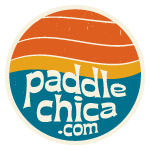I’m sure you’ve heard the phrase “paddle whore” before. I used to use the term frequently to describe my love of being a guest paddler. I make it a habit to paddle or steer wherever and whenever I can. When I travel to other cities, I contact a local team and ask to attend a practice. When other teams need extra paddlers for races and my own team isn’t entering that race or that division, I join them to compete. I’ve been fortunate to paddle in Bristol with the Bristol Empire Dragons, in
All too often teams are formed based on a love of paddling, aspirations to improve overall fitness, and a desire to be out on the water. There is a lot of heart, but not necessarily a lot of thought put into the global structure of the team. Having twenty people willing to come to practice is not enough in the long run. As your team begins to grow, it is important to define the type of team you would like your club to be and to set out ground rules for the members.
Ringers. A delicate topic full of opinions and emotion. There are at least as many points of view on this issue as there are dragon boat teams. A “ringer” is defined as a highly proficient person brought in to supplement a team or group. Some teams use them, other teams are staunchly opposed. Whether your team uses so-called “ringers” or not, it is important to understand the rationale for using them. In a talk given by Canadian National Team coach Albert McDonald at Jim Farintosh’s Bow Wave camp in April, Albert explained how teams
We all want to be better at paddling. We spend hours training both on and off the water. We push to become better and develop our individual selves. However, dragon boating is a team sport that requires the collective efforts of the club. So, what habits can you incorporate into your discipline that will not only help you, but also help your team? Here are 10 principles to adhere to in order to be a better teammate. 1) Listen to your coach. Listen to the coach’s feedback. Not just when it’s directed
With summer approaching for those of us in the northern hemisphere, paddle season is getting under way and we are heading back out onto the water. It’s an exciting time. We are dusting off our summer gear and perhaps looking for some new favorites. I wanted to share with you a few of my absolute summer must-haves. These are things that I can’t live without and, whenever possible, I have included a photo of me using them, just to show you how much I love them! I promise to only recommend things that I
We all know that paddling is a great workout, but there is a distinct difference between being in shape to paddle and using paddling as your primary method of getting in shape. Quite often, newbies join a dragon boat team to lose weight and/or get fit. That is actually what I did many years ago. I was looking for a way to get out on the gorgeous water in Miami and get in a good workout at the same time. True, for many people being out on the water with teammates is often more fun
Being part of a dragon boat team is so much more than simply showing up to practices and races, yet far too many paddlers don’t recognize the various facets involved in improving the team and being a good teammate. Chris Edwards, a Canadian National Team coach, gave a talk about the three pillars of a successful teammate which he credits to an NCAA hockey coach. Here are the three pillars that each teammate needs to exemplify: Builder Each member of the team must be willing to help build the team. Your club might be well-established, but if you do not work
Whether you are new to paddling or a veteran on the boat, if you are serious about the sport of dragon boating you are continuously seeking out ways to elevate your paddling ability. Approach your training as a learning opportunity and focus on each practice session as a chance to develop your skills. Here are three elements of training that every paddler should embrace: Progress Your training is a continuous journey towards a goal (or multiple goals). Depending on your individual progression, you will inevitably have peaks and valleys in your training. But
Coaches are a vital part of every team. The team’s trainer, teacher, mentor, negotiator, problem solver, motivation provider, facilitator, and organizer; a coach is a vital part of the team. Sometimes coaches can be a bit intimidating, especially when you are new to the team. We look up to our coaches, not only because they are selecting the race crew, but also because they hold such in-depth knowledge of the sport. Having a conversation with the coach might not always be easy, but open communication with your coach is essential to your
Think back to your first day on the dragon boat. Chances are, you were given a paddle, a life vest, and a whole boatload of directions. Do you remember much of what was said to you? Probably not. If you were anything like me, your whole focus was on NOT clanking paddles with the people around you. It’s a wonder I even came back for more. Forget about technique. Just getting my timing down was a bonus. How can you help a new paddler through those times when the pain and desperation of paddling make a person want to

